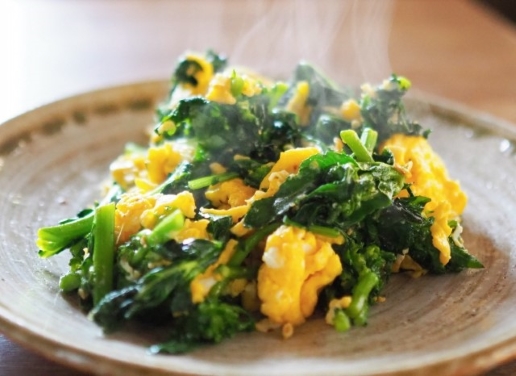Taiwanese athletes have so far won 11 medals at the Tokyo Olympics, including gold medals in men’s doubles badminton and women’s 59 kg weightlifting. That places Taiwan in 18th place in the overall medal counts. It’s by far Taiwan’s best performance at the Olympics – it previous highest medal was five, a mark reached at both the 2004 Games in Athens and the 2000 Games in Sydney.
But if you’re looking for the official results, you won’t find them under the name “Taiwan” or the formal name of the Republic of China. Instead, Taiwan competes at the Olympics using the name “Chinese Taipei.” Similarly, Taiwanese athletes at the Olympics fly a unique flag sporting the Olympic rings, not the official national flag, and when they reach the top of the podium they hear not Taiwan’s national anthem but the “national flag anthem.”
0811.jpg) Taiwanese athletes’ record-setting medal haul has drawn new attention to the odd arrangement under which they compete at the Olympics.
Taiwanese athletes’ record-setting medal haul has drawn new attention to the odd arrangement under which they compete at the Olympics.
These Olympic alternatives were the outcome of a compromise reached in 1981 between Taiwan’s Olympic Committee and the International Olympic Committee. At the time, the People’s Republic of China had taken over seats previously held by the ROC government on Taiwan at the United Nations and other global bodies. The Olympic compromise allowed Taiwan’s athletes to continue to participate in the Games and other international sporting events without suggesting Taiwan was a separate political entity from the PRC – something that would be anathema to Beijing.
The use of the “Chinese Taipei” moniker has caused sporadic controversy ever since, with many Taiwanese resentful of the restrictions on their delegation’s name and flag. Back in 2018, Taiwan even held a referendum on whether it should officially change use the name “Taiwan” in international sporting events, starting with the Tokyo 2020 Olympics. “Taiwanese do not want the athletes representing their nation to be called ‘Chinese Taipei’ when they are competing or walking to the podium to receive an Olympic medal,” former Olympian Chi Cheng, one of the main proponents of the referendum, said.
While the name change had some vocal supporters, the government – despite often being (mistakenly) described as “pro-independence” – refused to throw its weight behind the change. Some athletes also warned against a new name, saying it could result in Taiwan’s athletes being excluded from international competition. The IOC had warned that Taiwan could be barred from the Games altogether if it changed its delegation’s name.
As a preview of what could come, the East Asian Olympic Committee took the 2019 East Asian Youth Games away from original host city, Taichung in Taiwan, in what was widely seen as retaliation for merely holding the referendum. China spearheaded the move. At the time, China’s Taiwan Affairs Office said the cancellation was the result of “Taiwan’s flagrant challenges of the ‘Olympic model’” by “Taiwan independence” elements.
In the end, the referendum was defeated, with 52 percent voting against it and just 43 percent for it. However, in the wake of Taiwan’s unprecedented success in Tokyo, media reports suggest momentum for another attempt to change the name before the 2024 Summer Olympics in Paris. “Chinese Taipei is a very confusing name,” Chi, who backed the previous referendum, told the Guardian. “It’s quite often our athletes are [mistakenly] recognized as Chinese contestants.”
A formal name change still looks unlikely, given the consequences. Instead, many in Taiwan have decided to ignore the team’s official name altogether. President Tsai Ing-wen, for example, has been tweeting congratulations to athletes using the hashtag #TeamTaiwan. Just after the Opening Ceremony, Tsai posted on Facebook, “No matter how big the challenge, nothing can prevent Taiwan from being a part of the world.” When the Taiwanese delegation entered the arena, Tsai said, “Taiwan was standing on the world stage, and we all shared a feeling of pride.”
Tsai made no mention of the “Chinese Taipei” name, much less suggesting an outright change. Still, China was not amused. “Using dirty tricks to scheme toward ‘independence’ during sporting events is a dead end,” China’s Taiwan Affairs Office responded testily, adding that the “Chinese Taipei” moniker was the result of a deal reached with the IOC to “resolve the issue of participation of ‘Chinese Taipei’ under the one-China principle.”
0811.jpg) Tsai made no mention of the “Chinese Taipei” name, much less suggesting an outright change
Tsai made no mention of the “Chinese Taipei” name, much less suggesting an outright change
Taiwan’s athletes have not been shy about claiming Taiwanese national identity. Wang Chi-lin, part of Taiwan’s gold-medal winning badminton duo, posted on Facebook in English and Chinese: “I am Wang Chi Lin. I am from Taiwan.” He began the post with a string of emojis of Taiwan’s flag.
The other half of the duo, Lee Yang, dedicated their victory to “my country, Taiwan.”
Meanwhile, Li Jinhui, part of the Chinese duo that lost to Taiwan’s badminton team in the final, made sure to congratulate “our Chinese Taipei team,” with three Chinese flag emojis, for their victory.

0811.jpg)





